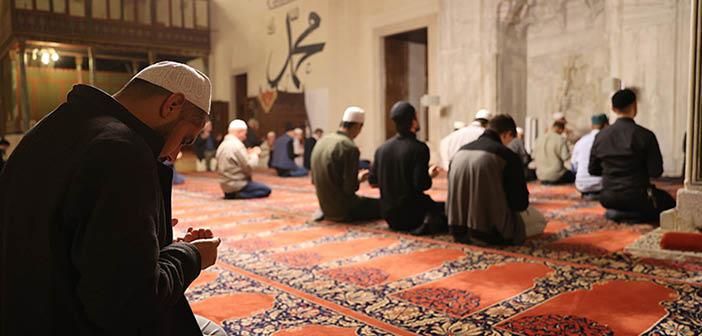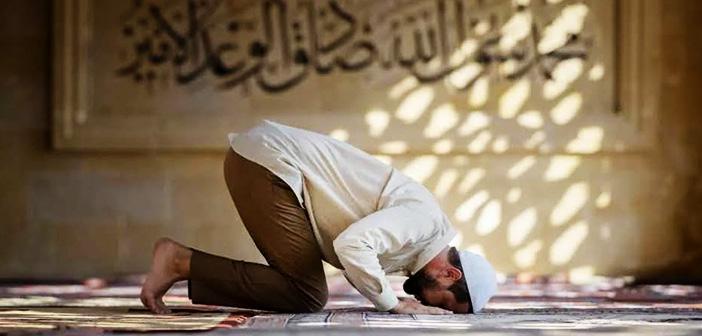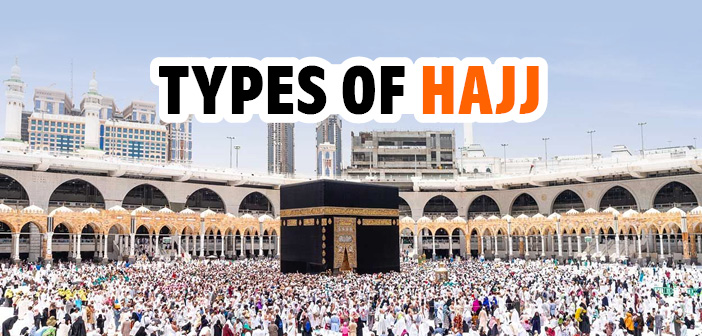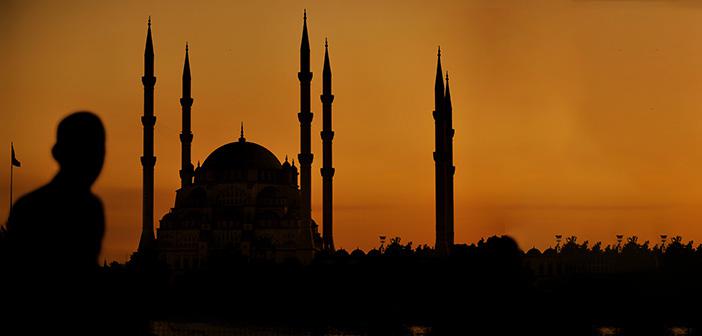
The Prayer of the Traveler
What is the prayer of traveler? What is the traveling prayer in the quran? How do you pray when traveling in islam? What are the travel prayers in quran?
A) THE NATURE OF TRAVEL
The Arabic words safar and musāfara mean journey, travel. In Islamic terminology, safar refers to traveling a certain distance, to travel to a distance of three days, or eighteen hours, with a moderate walk. This is also called the “three encampments”.
The moderate walk means traveling at the pace at which a camel travels and/or at which one may walk. As regards to the voyage in the seas, it refers to a three-day voyage with a sailing ship.
Such a walk on land and eighteen hours on a sailing ship in mild weather on the seas is considered a “travel time”. Only the going distance of a travel is taken as the basis of calculations, the round-trip distance is not taken into account. Even if the traveler makes much speed and covers this distance in a shorter time, as in the case of modern means of transportation today, one is still considered a traveler and performs the prayers in a shortened way.
A person residing in his homeland or in a place that is legally considered as homeland is called a “resident”, and a person who has left this place and started to travel a distance of at least eighteen hours is called a “traveler (misāfir)”.
The shortest time or distance required to be considered a traveler:
a) Opinion which takes a three-day trip as the basis:
According to the Ḥanafis, the shortest distance in travel is a three-day journey, traveling at the pace at which a camel travels and/or at which one may walk on the shortest days of the year. The proofs on which they rely are as follows, Allah Almighty says in the Qur’an, “When you travel through the earth, there is no blame on you if you shorten your prayers, for fear the Unbelievers may attack you...”[1] There is no restriction mentioned regarding travel in this verse. However, it is clear that to be considered a traveler, it is necessary to move away from the residential area and travel a certain distance. For that reason, those who go to the cemetery, the industrial zone, and similar places on the outskirts of settlements are not called “travelers” in people’s custom. The following Qur’anic verse also requires a certain amount of distance for travel, “…but if any of you is ill, or on a journey, the prescribed number (should be made up) from days later.”[2] The Prophet’s instruction to the Meccans to perform the prayer in full on their journey to a place closer to Usfān gives us an idea of the shortest distance of the journey. This is because Usfān is at a distance of four-encampment (barīd) from Mecca, which is approximately 88,704 km.[3]
The Ḥanafis base it on the following hadiths when determining the shortest distance traveled for a three-day journey, “A resident wipes over his khuffs for a full day and night, and a traveler for three days and three nights.”[4], and “It is not permissible for a woman to travel longer than three days unless she is accompanied by her husband or a maḥram.”[5] Al-Kasanī (d. 587/1191) said the following on this subject, “If the travel had not been determined with a distance of three days, it would not make sense to specify the travel with the three days mentioned in the hadiths. These two hadiths are narrated by many transmitters and famous. If one says that the limitation of the absolute expression in the verse, “When you travel through the earth, there is no blame on you if you shorten your prayers.”[6] is an abrogation, it is permissible to abrogate the rulings of the Qur’an by a famous hadith. On the other hand, these hadiths defined the term travel in the expression “on a journey” in the verse.”[7]
The state of travel is generally a state of difficulties and troubles. Therefore, the religion of Islam has brought some conveniences for travelers. It is not possible to continue the journey day and night without lodging. Rest is also needed. Therefore, the daily travel time has been determined as six hours. Based on the five kilometers of distance covered per hour, the travel distance becomes a total of 90 km. The fact that some journeys can be done comfortably, effortlessly, and in a very short time does not change the ruling. For the ruling will take place not according to the individual situations, but according to the genus, that is, it is applicable to all travel situations. On the other hand, according to the Ḥanafis, the effective cause of the conveniences provided for the journey is based upon merely being on a journey for a certain distance. Removing the difficulty and hardships is the wisdom of this ruling.
According to Abu Yusuf, the journey distance is two full days and most of the third day. As a matter of fact, some Ḥanafi jurists counted a distance of five parasangs a day or 15 parasangs in three days, or three encampments, as “distance of travel”. According to this calculation, 1 parasang = 3 miles, 1 mile = 1848 meters. when it was 15 parasangs x 3 miles x 1848 m. = 83,060 km. constitutes the distance of travel.
Ibn al-Humām (d. 861/1457) explains the relationship between parasangs and three days of travel as follows, “According to some, the distance of travel was determined as 21, 18 or 15 parasangs. Each of those who determine these amounts agree that the distance is three.”[8] Ibn Abidīn (d. 1252/1836) explains the difference between the number of parasangs as follows, “These are according to the variances of the countries. Each of the scholars has tried to calculate the shortest, middle, or longest day in their own country. This is the reason for the difference of opinion in the amounts of parasangs. However, it is clear that these measures mean regular walking on certain days.”[9]
Therefore, parasangs should not be considered as a measure in this regard. However, when the parasang is taken as the basis of calculations, the solution to so many issues becomes easier.
For example, in journeys made by train or plane, the number of parasangs to be covered is taken into account. When a distance of at least eighteen parasangs has been covered, the duration of the travel has come to pass and the rulings regarding the travel begin to be applied. It is no longer considered whether the land or sea vehicle is a fast-moving one.
b) Opinion based on distance:
The Shafiʿi, the Maliki, and the Ḥanbali schools took the criterion of “distance” as the basis for determining travel. Namely;
There are six different views attributed to Imam Shafiʿi regarding the distance of the travel. These are 40, 46, 48 miles, two days and two nights or one day and one night. However, according to his jadīd (latest or newest) view, the travel distance is 4 barīd or 48 miles, which is 48 miles x 1848 meters. = 88,704 km. According to the Shafiʿis, this distance is the limit, and for any distance shorter than that, the provision of travel will not be applicable.[10] The evidence on which they base this is the fatwa of Ibn Abbas that the prayer can be shortened during the journeys between Mecca and Jeddah, between Mecca and Usfān, and between Mecca and Taif,[11] together with the reports that Ibn Abbas and Ibn ʿUmar shortened their prayers and did not fast in 4 barīds or more.[12] These distances are approximately 4 barīds, that is, 88,704 km. away.[13]
The travel distance for the Malikis is 4 barīds or two days. 4 barīd= 48 miles = 48 x 1848 m.= 88.704 km. Their proof is when Abdullah Ibn ʿUmar went from Medina to Raym, he shortened his prayers there.[14] Raym is a valley at a distance of 4 barīds from Medina. On the other hand, the Prophet (saw) said, “O people of Mecca! Do not shorten the prayer when traveling to a place closer than the distance between Mecca and Usfān. This is a place four barīds away.”[15] It is reported that Ibn Abbas and Ibn ʿUmar shortened the prayer at a distance of 4 barīds and did not fast.[16] The distance is not limited by the Malikis, and ritual prayers can be shortened if it is up to 8 miles less than the above-mentioned distance. On the other hand, the people of Mecca, Mina, Muzdalifah, and Muḥassab are exceptionally considered travelers when they go to Arafat during the pilgrimage.[17]
For the Ḥanbalis, the journey distance is 4 barīds or 16 parasangs or two days’ journey. This is 16 parasangs x 3 miles x 1848 m. = 80 704 km. Their proof is a hadith narrated from Abdullah Ibn ʿUmar as marfū stating that ritual prayers should not be shortened on journeys shorter than the distance between Mecca and Usfan.[18] Moreover, 1 or 2 miles less than the above distance does not change the ruling about travel distance.
As a result, the views regarding the travel distance among the imams of the schools seem to be based on the distance of Usfān, Jeddah, and Taif to Mecca of that day, and the distance between Suwayda and Raym valley to Medina. These distances are approximately 4 barīd = 48 miles = 88 704 km. Accordingly, the views of the schools seem to intersect at approximately 90 km.[19] Traveling this distance in a shorter time with today’s fast-moving vehicles such as cars, trains, helicopters or planes does not eliminate the reasons and wisdom on which the facilities provided for travel are based. For this reason, the opinion of Elmalılı Hamdi Yazır (d. 1358/1939) that the passenger cannot benefit from the facilities provided for travel unless the fast-moving vehicles like a train travels six hours a day, three days, that is at least eighteen hours in normal speed, is inconsistent with the practices of the Prophet and the Companions.[20] For being on a travel is a process that continues for up to 15 days not only during the actual journey but also while staying at the destination.
If there are two different roads to go to a place by land, only those who go there by the road which fulfills the requirement of travel distance can benefit from the conveniences provided for travel.
B) STARTING PLACE OF THE PROVISIONS OF BEING ON A JOURNEY
In order for a person to be considered a traveler, it is not enough to intend to go to a place that is at least as far away as the travel distance, but it is also necessary to actually set out on a journey in order to benefit from the conveniences of being on a journey. Accordingly, the journey starts as soon as one leaves the residential area (where there are homes) of the city, town, or village where he lives and intends to go to a place for at least a travel distance away. For this reason, the journey will not have started until the settlements on the edge of the city, the villages integrated with the city, or for those who set out from the village, until the additions of the village such as the harvest place, cemetery, and barns called “finā al-miṣr” are passed. As a matter of fact, the Prophet (saw) who performed the noon prayer as four cycles in Medina while setting out from Medina for the Farewell pilgrimage, performed the late afternoon prayer as two cycles in Dhulḥulayfa, which is 5.5 km away from Medina.[21] While Ali (ra) was on his way from Basra to Kufa, he used to pray the noon prayer in four cycles, and then, when reed huts were seen in front of them, he would say, “If we had passed these huts, we would have shortened the prayer.”[22]
Areas such as factories, organized industrial establishments, wholesale markets, vineyards, gardens, and animal and poultry farms outside the settlement area of the city or village are not counted as part of the city.
C) PROVISIONS RELATED TO THE TRAVEL
Some conveniences and concessionary rules have been introduced for those who are on a journey. It is permissible for a person traveling in Ramadan to postpone the fasting to a time after Ramadan. The period for wiping over khuffs for the traveler is three days and three nights. The traveler performs the four-cycle farḍ prayers as two cycles. This is called “qaṣr aṣ-ṣalāt”. We will focus on these concessionary rules below.
1) Performing a Four-Cycle Prayer in Two Cycles
Based on the evidence from the Qur’an, Sunnah, and the consensus of Muslim jurists, it is permissible to shorten the four-cycle obligatory prayers and perform them as two cycles while traveling.
Allah Almighty says, “When you travel through the earth, there is no blame on you if you shorten your prayers, for fear the unbelievers may attack you.”[23] Attaching the permission to shorten the prayers to the condition of fear in this verse is to establish the circumstances of that day. For most of the journeys of the Messenger of Allah (saw) were not without fear. Yaḥyā ibn Umayya (ra), one of the Companions of the Prophet, said to ʿUmar, “Allah had said: ‘You may shorten the prayer only if you fear that those who are unbelievers may afflict you”, whereas the people are now safe. Why do we pray by shortening the prayers?’ He replied: ‘I wondered about it in the same way as you wonder about it, so I asked the Messenger of Allah (saw) about it and he said, “It is an act of charity which Allah has done to you, so accept His charity.’”[24]
Reports stating that the Prophet shortened the prayers during his journeys for umrah, hajj, or war are at the level of tawatur. Abdullah Ibn ʿUmar (ra) said, “I was accompanied by the Prophet (saw). He would not pray more than two cycles on his journeys. Abu Bakr, ʿUmar, and Uthmān used to do the same.”[25] It was narrated that ʿUmar said, “Allah enjoined the prayer upon the tongue of your Prophet (saw): Four cycles while one is a resident and two-cycle when traveling.”[26]
Is it obligatory for the traveler to shorten the four-cycle obligatory prayers? Or is the traveler free to choose between shortening and performing it fully?
According to the Ḥanafis, it is not a concessionary rule (rukhṣah) for a traveler to perform a four-cycle farḍ prayer as two cycles, but rather it is an aẓīmah. If the traveler performs the full prayer intentionally, he will have committed a bad deed and the last two cycles will be considered supererogatory prayer. It is narrated that Aisha said, “The prayer was prescribed as two cycles, two cycles both in the journey and at the place of residence. The prayer while traveling remained as it was (originally prescribed), but an addition was made in the prayer (observed) at the place of residence.”[27] It is narrated that Ibn Abbas (ra) said, “Allah has prescribed the prayer through the word of your Prophet (saw) as four cycles when resident, two when traveling.”[28]
If the traveler performs two-cycle prayers as a four-cycle and performs tashahhud, and then performs two more cycles, he will be performing the obligatory prayer and the last two cycles will be considered supererogatory. However, he is considered to have committed a bad deed because of delaying the salutation. However, if he abandons the first sitting or does not recite in the first two cycles, he will not be considered to have fulfilled the farḍ. As a matter of fact, this is the case in the dawn and Friday prayers.
According to the Shafiʿis and the Ḥanbalis, the original form of the farḍ is four cycles, and shortening it while traveling is a concessionary rule. Their proof is the verse stating that prayers can be shortened while traveling indicates that the prayer is full and shortening it is not stated in the style of “command”. Again, the expression “shortening is a charity” conveyed by ʿUmar, and the fact that Aisha sometimes performed her prayers without shortening during the journey are also supporting evidence in this regard. Imam Shafiʿi also compared this issue to Ramadan fasting. However, according to the Ḥanbalis, shortening is more virtuous. According to the view preferred by the Malikis, it is a mu’akkad sunnah to shorten the prayers on a journey because that was the practice of the Prophet.[29]
2) Combining Two Prayers while Traveling (Jamʿ aṣ-Ṣalatayn)
According to the Ḥanafis, it is necessary to perform the five daily prayers within their own time for “time” is one of the conditions of the ritual prayer.[30] However, during the pilgrimage, noon and late afternoon prayers are performed together at noon in Arafat on the day of Arafa, and evening and night prayers are performed together at night prayer time in Muzdalifah. This is based on the authentic sunnah. During the journey, as the Prophet did during the Battle of Tabuk, it is permissible to perform the noon prayer in its last moments and then the late afternoon prayer in its earliest moments; and to delay the evening prayer to its latest moments, and to perform the night prayer at its earliest time. This is called “jamʿ al-sūrī that is, combining in appearance”. Yet, every prayer here is performed in its own time.
According to the majority of schools, it is permissible during the journey to combine noon and late afternoon, and evening and night prayers in each other’s time. They relied on the hadiths stating that the Prophet combined these prayers on a journey or in rainy weather.[31] [32]
3) Postponing Ramadan Fasting to a Later Time
If the traveler wishes, he or she may not fast during Ramadan and postpone it until later. The following is stated in the Qur’an, “(Fasting) for a fixed number of days; but if any of you is ill, or on a journey, the prescribed number (should be made up) from days later...”[33] Aisha (r. anha) traveled with the Messenger of Allah (saw) from Medina to Mecca to perform umrah and when they arrived in Mecca she said, “O Messenger of Allah! I prayed the prayers sometimes short and sometimes full. Sometimes I fasted and sometimes I did not.” The Messenger of Allah (saw) said, ‘You did well’, and he did not condemn me.”[34]
4) Wiping Over Khuffs for Three Days
The period of wiping over the khuffs is one day and one night for a resident, and three days and three nights for a traveler. This was the practice of the Prophet. However, even if this period does not expire, the khuffs must be removed due to ceremonial impurity (janābah).[35]
5) Status of Supererogatory Prayers on the Journey
According to the Ḥanafis, if there is security and comfort in the accommodation during the journey, it is necessary to perform mu’akkad sunnahs attached to the farḍ prayers. In the hadith, it is commanded, “Even if horses chase you, do not abandon the two-cycle sunnah of the dawn prayer.”[36] When returning from the Battle of Khaybar, the believers could not get up for the dawn prayer in their camps and they first performed the two sunnah cycles of dawn prayer after the sun had risen, and then the Messenger of Allah led the farḍ cycles.[37] As a matter of fact, it is also reported that the Prophet prayed supererogatory prayers on his mount with gestures no matter which way the mount turns..[38] it is not necessary to perform the supererogatory prayers if there are difficulties, such as fear, time constraints, etc. during traveling.[39] It was narrated from Abu Musa (ra) that the Messenger of Allah (saw) said, “When a slave falls ill or travels, then he will get a reward similar to that he gets for good deeds practiced at home when in good health.”[40]
According to the majority of the imams of the schools, it is not necessary to perform supererogatory prayers other than the sunnah of the dawn prayer while traveling. The evidence is the following hadith reported from Abdullah ibn ʿUmar, “We were with Ibn ʿUmar on a journey, and he led us in prayer. Then we finished with him and he finished turning around and saw some people praying. He said: ‘What are these people doing?’ I said: ‘Glorifying Allah.’ He said: ‘If I wanted to glorify Allah (perform voluntary prayer) I would have completed my prayer. O son of my brother! I accompanied the Messenger of Allah (saw) and he never prayed more than two cycles when he was traveling, until Allah took his soul. Then I accompanied Abu Bakr and he never prayed more than two cycles (when he was traveling), until Allah took his soul. Then I accompanied ʿUmar and he never prayed more than two-cycle, until Allah took his soul. Then I accompanied ‘Uthman and he never prayed more than two cycles, until Allah took his soul. Allah the Exalted said: “Surely there is a good example for you in the Messenger of Allah.”[41] Nawawi (d. 676/1277) commented regarding this hadith by saying, “Perhaps Ibn ʿUmar did not see the supererogatory prayers (rawātib) because he performed them on his mount or in his tent!”.[42]
D) SEVERAL ISSUES RELATED TO THE JOURNEY
According to the Ḥanafis, regardless of the purpose of the journey, the concessionary provisions remain. It does not affect the result if the traveler intends to commit a ḥarām or a makrūḥ act or do something permissible. Accordingly, it is permissible to shorten prayers and not to fast during Ramadan during any kind of travel. For example, anyone who travels to intercept a road, have an illegal party, or commit another ḥarām can also benefit from concessionary provisions of travel. The proof of this view is the absolute expression of the verse[43] that states that prayers can be shortened while traveling. It is analogous to the fact that shopping to be done during the Friday prayer[44] is considered valid even though it is makrūḥ.[45]
According to the majority of Muslim jurists, other than the Ḥanafis, concessionary rules such as shortening the prayers, combining them, breaking the fast, wiping over the khuffs for three days, and performing supererogatory prayers on the mount are not permissible for a person who sets out to commit sins such as cutting roads, trading wine and other ḥarām acts. Because such people are considered to have traveled to rebel against Allah. The principle on this subject is as follows, “Concessionary rules cannot be used as a basis for committing malice and evil.” Again, Allah has attached the permission to eat the meat of dead animals to the condition of “without willful disobedience, nor transgressing due limits”.[46]
According to the Ḥanafis, when a traveler intends to stay in a town for more than fifteen days, he becomes a resident and performs his prayers full. If he intends to stay less than fifteen days, his state of travel will continue. The evidence of this view is compared to the cleaning period of women. The period of cleansing requires returning to the regular performance of prayer and fasting that is ineffective on the woman during the period of menstruation. Being in the place of residence also requires returning to the performance of some of the duties that are ineffective on the person due to travel. Therefore, just as the cleaning period is limited to fifteen days, the minimum residence period should be established as fifteen days. This view is based on the following statement from Ibn Abbas and Ibn ʿUmar (r. anhum), “If you enter a town while you are on a journey and intend to stay in this town for fifteen days, perform your prayers fully. If you do not know when you will travel from there, shorten your prayers.”[47]
A person who goes to a place far enough to be a traveler waits to take care of a certain need there and if he stays for a long time without intending to stay there, thinking that “I will leave today, I will leave tomorrow”, he will continue to benefit from the provisions of being on a travel. As a matter of fact, Sa’d Ibn Abi Waqqāṣ (d. 55/675) stayed in the village of Nishapur for two months, Abdullah Ibn ʿUmar stayed one month in Azerbaijan, and Alqama (d. 62/681) stayed in Harzem for two years and they all shortened the prayers.[48]
Even if the Muslim army enters a town and intends to stay there for more than fifteen days, Muslim soldiers shorten their prayers. This is because there is a possibility of both staying there and being defeated and withdrawing, so the intention regarding the duration is not valid.
According to the Shafiʿis and the Malikis, if a traveler intends to stay in a place for four or more days, he performs his prayers in full. This is because the sunnah states that staying in one place for less than four days will not invalidate the state of traveling. As a matter of fact, when the Prophet (saw) performed umrah, he stayed in Mecca for three days and shortened his prayers.[49]
According to the Ḥanbalis, if a person intends to stay for more than four days or more than twenty prayers, he performs his prayers in full. If it is less than that, he shortens it.[50]
In matters of travel and residence, the intention of the person who is being followed, for example, a commander, and not the intention of the person who follows, for example, a soldier, is valid. Therefore, the soldier becomes a traveler or resident based on the commander’s intention; the employee becomes a traveler or resident based on the intention of the employer; the student becomes a traveler or resident based on the intention of the instructor’s intention, and the wife becomes a traveler or resident based on the intention of her husband.
Travel provisions do not apply to a child who has not yet reached the age of puberty. However, according to the Shafiʿis, the intention of the child to travel is valid and he can pray by shortening his prayers.
If a traveler does not know where the person whom he is following is going and how long they will stay there and does not get an answer to his questions, he performs his prayers fully in places within the minimum distance of travel and then begins to shorten them.
If the head of a Muslim nation travels for a while in his country without intending to travel, he performs his prayers in full, but if he intends to travel for the duration of the journey, he shortens his prayers. That is the right action.
The missed prayers of the resident do not change when he goes on a journey and the missed prayers of the traveler do not change when he intends to stay. Therefore, the person performs the missed prayers during travel as two cycles even after returning from the travel and a traveler performs his missed prayers during his residence as four cycles even when traveling.
When the prayer is performed in the congregation, the resident may follow the traveler and the traveler may follow the resident. If the resident follows a traveler, when the traveling imam offers his salutes at the end of the two cycles, the resident ones in the congregation do not offer their greetings and return to a standing position and complete the prayer in four cycles. Since he has prayed from the beginning of the prayer with the imam and the obligatory recitation has been fulfilled, this person -according to sound opinion- completes the prayer without any other recitation, and if he is mistaken, it is not necessary to perform the prostration of sajdah because this resident is in the state of lāḥiq.[51] It is mustaḥab for the traveler who becomes an imam to say and warn the congregation before the prayer, “I am a traveler, do not forget to complete your prayers”.
On the other hand, the traveler can only follow a resident imam during the time of the ritual prayer. In such a case, he performs a four-cycle farḍ prayer exactly like a resident. By following the imam within the time of the prayer, the obligatory prayer turns from two cycles to four cycles. Ibn Abbas was asked, “What do you think about the traveler’s situation? He performs two cycles when he performs alone and four cycles when he follows a resident imam.” and he replied, “It is in accordance with the sunnah to do so.”[52] Nāfiʿ said, “When Ibn ʿUmar was on a journey, he would perform the prayers in four cycles when he prayed with an imam, and in two cycles when he prayed alone.”[53]
A person cannot follow a resident imam in a four-cycle prayer that he has missed while he was a traveler because this prayer was previously established upon him as two cycles.
E) THE END OF THE STATE OF BEING ON A JOURNEY
The state of traveling ends by returning to the homeland (waṭan al-aṣlī). Even if one does not intend to stay there, the result does not change. If one is returning to his temporary residence (waṭan al-iqāmah), intention to stay is required.
There are three types of residence:
- Waṭan al-aṣlī: The place where a person was born and raised, or married and wants to live in, or where he intends to live in and does not want to take another place as his homeland, is called “waṭan al-aṣlī”.
- Waṭan al-iqāmah: The place where a person wants to stay for more than fifteen days but without being the place where he was born, married, and settled is called “waṭan al-iqāmah”.
- Waṭan al-suknā: The place in which a traveler wishes to stay for less than fifteen days is his own “waṭan al-suknā”. This last one does not have any effect on rulings. With this, neither the original homeland nor the place of temporary residence will be changed.
With regard to the rules of traveling, these residences are invalidated with their own like or with a residence in a higher status, not with the lower ones. Therefore, the place, which is the original homeland of a person will not change by other temporary residences, no matter if it is a place stayed in for more than the duration of travel or not. In other words, a person who is in his temporary residence does not become a traveler by returning to his original homeland. When a person arrives at the place where he was born and settled or where his wife settled, he does not become a traveler. If this place is more than 90 km away, he will become a traveler only during the journey, but when he reaches the destination, his state of being a traveler ends.
If a person moves from his waṭan al-aṣlī to another place in order to settle permanently, the place he goes to turns into his waṭan al-aṣlī, the first place ceases to be his waṭan al-aṣlī. For when the Prophet (saw) went to Mecca, he considered himself a traveler and said “we are on a journey”.[54]
Waṭan al-aṣlī does not change by waṭan al-iqāmah. When a person leaves the place where he was born or where his wife is located, for reasons such as education, military service, or labor, with the intention to stay for more than fifteen days, this does not change the status of his waṭan al-aṣlī. Even when he returns to his waṭan al-aṣlī to stay for three days, it is not considered a journey because waṭan al-iqāmah does not change the status of waṭan al-aṣlī.
If a person lives in one city and marries in another city without moving his relatives, both cities will be waṭan al-aṣlī for him. Whichever city he goes to, he is considered a resident. Waṭan al-iqāmah, on the other hand, is changed by going to another waṭan al-iqāmah or leaving there and going on a journey, or returning to waṭan al-aṣlī. In other words, if a person who leaves waṭan al-iqāmah comes back there to stay there for less than fifteen days, he is considered a traveler.
Waṭan al-suknā, which is a place one stays in for less than fifteen days, is of no importance. The person is considered to be a traveler there. This type of residence does not have the power to change the status of other types of residences. A person is considered to be a traveler from the moment he leaves the residential areas of his city while being in the place where he traveled, and in all his journey that lasts less than fifteen days and is further than 90 km. This status continues until he returns.
[1] Al-Nisā, 4: 101.[2] Al-Baqara, 2: 184.[3] Al-Sarakhsī, Mabsūt, I, 235.[4] Muslim, Ṭaḥāra, 85; Abū Dawūd, Ṭaḥāra, 61; al-Nasā’ī, Ṭaḥāra, 98; Ibn Maja, Ṭaḥāra, 86; al-Zaylaī, Naṣb al-Rāya, II, 183.[5] Al-Bukhari. Taqṣīr, 4; Muslim, Ḥajj, 413; Abū Dawūd, Manāsik, 2.[6] Al-Nisā, 4: 101.[7] Al-Kāsānī, Baḍāyi’, I, 94.[8] Ibn al-Humām, Fatḥ al- Qadīr, II, 30.[9] Ibn Abidīn, Radd al-Mukhtār, III, 253, 254.[10] Al-Nawawī, al-Majmū’, IV, 322, 323.[11] Abdurrazzāq, Muṣannaf, II, 524.[12] Al-Bukhari, Taqsīr, 4.[13] In today’s maps, the distance between Mecca and Jeddah = 79 km, between Mecca and Taif = 88 km. See Mehmet Erkal, Seferilik ve Hükümleri, Ensar Neşr. (Bildiriler), Istanbul 1997, p. 166.[14] Muwaṭṭā’, Qaṣr, 3; Ibn Rushd (Averroes), Bidāya, I, 168.[15] Al-Sarakhsī, ibid, I, 235; al-Daraquṭnī reported this hadith from Ibn Abbas. According to al-Khattabī, this hadith is the strongest of the two narrations reported from Ibn Umar. According to the Ḥanbalis, the word of the Companions is a proof, especially if it is contrary to qiyās (general principle).[16] Al-Bukhari, Taqṣīr, 4.[17] See Erkal, ibid, p. 163.[18] Al-Daraquṭnī, I, 387.[19] Mehmet Erkal, Seferilik ve Hükümleri, Ensar Neşr. (Bildiriler), Istanbul 1997, p. 162-166.[20] Elmalılı, Hak Dini Kur‘an Dili, VIII, p. 381, Zaman Neşri, I, 519, 520; Hamdi Döndüren, Seferilik ve Hükümleri, (Bildiri), p. 175, 176.[21] Ṭabaqāt, II, 125.[22] Al-Sarakhsī, Mabsūt, I, 236.[23] Al-Nisā, 4: 101.[24] Muslim, Misafirin, 4; al-Tirmidhī, Ṭaḥāra, 4, 20; al-Nasā’ī, Taqṣīr, 1; Ibn Maja, ‘Iqāmah, 73.[25] Al-Bukhari, Taqṣīr, 11.[26] Ibn Maja, ‘Iqāmah, 73, 124.[27] Al-Bukhari, Ṣalāh, 1; Muslim, Misafirin, 1; Abū Dawūd, Safar, 1; al-Nasā’ī, Ṣalāh, 3; Malik, Safar, 3.[28] Muslim, Misafirin, 5, 6; Abū Dawūd, Safar, 18; al-Nasā’ī, Ḥawf, 4; Ibn Maja, ‘Iqāmah, 75.[29] Al-Sarakhsī, ibid, I, 239; Ibn Rushd (Averroes), ibid, I, 161; al-Shirazī, Muhadhdhab, I, 101; Ibn Qudāmah, Mughnī, II, 267-270; al-Zuhaylī, ibid, II, 313-315.[30] Al-Nisā, 4: 103; Hūd, 11: 114.[31] See al-Bukhari, Taqṣīr, 15, 16; Muslim, Musāfirīn, 46; al-Tirmidhī, Jumʿa, 42; al-Nasā’ī, Mawāqīṭ, 42, 44, 45.[32] For more information, see the subject of “To perform two prayers together”.[33] Al-Baqara, 2: 184. See also verse 185.[34] Al-Rāzī, Tafsīr, Istanbul 1257, II, 18.[35] Al-Nasā’ī, Ṭaḥāra, 98; Ibn Maja, Ṭaḥāra, 86; al-Tirmidhī, Daʿāwāt, 98; Aḥmad ibn Ḥanbal, VI, 240.[36] Aḥmad ibn Ḥanbal, II, 405; Abū Dawūd, Ṭaṭawwū’, 3, Hadith No: 1258.[37] Abū Dawūd, Ṣalāh, 11, H.No: 435, 443; al-Nasā’ī, Mawāqīṭ, 54, 55; Aḥmad ibn Ḥanbal, IV, 444; al-Taḥanawī, I’lā as-Sunan, II, 126.[38] See al-Bukhari, Taqṣīr, 7-9.[39] Ibn Abidīn, ibid, II, 270; Ibn Qudāmah, ibid, II, 271.[40] Al-Bukhari, Jihād, 56, Hadith No: 134; Abū Dawūd, Janā’iz, 20, Hadith No: 3091.[41] Muslim, Musāfirīn, 8; Ibn Maja, ‘Iqāmah, 75, Hadith No: 1071; al-Nasā’ī, Taqṣīr, 5, Hadith No: 1456.[42] See Saḥīḥu Muslim bi Sharḥ an-Nawawī, Egypt 1349, Musāfirīn, 8; al-Zuhaylī, ibid, II, 349.[43] Al-Nisā, 4: 101.[44] Al-Jumʿa, 62: 9.[45] Ibn al-Humām, ibid, I, 405 ff.; Ibn Abidīn, ibid, I, 733, 736; al-Zaylaī, Tabyīn al-Ḥaqāiq, I, 215 ff.[46] Al-Baqara, 2: 173; See Ibn Rushd (Averroes), ibid, I, 163; al-Shirbinī, ibid, I, 268; Ibn Qudāmah, ibid, III, 261; Al-Zuhaylī, ibid, II, 323 ff.[47] Al-Kāsānī, Badāyiʿ, I, 97; al-Aṣqalanī, Bulūgh al- Marām, II, 111; al-Zuhaylī, ibid, II, 323.[48] Al-Kāsānī, Badāyiʿ, I, 97; Ibn al-Humām, ibid, I, 397; al-Shirazī, ibid, I, 103; Ibn Rushd (Averroes), Bidāya, I, 63.[49] Al-Shawkanī, ibid, III, 207 ff.[50] For more information see Hamdi Döndüren, Seferilik ve Hükümleri, (Bildiri), Neşr. Ensar, Istanbul 1997, pp. 171-196.[51] See the subject of “Lāḥiq”.[52] Al-Zuhaylī, ibid, II, 335.[53] Al-Zuhaylī, ibid, II, 335.[54] Al-Shawkanī, ibid, III, 207.
Source: Basic Islamic Principles (ilmiḥal) According to the Four Sunni Schools With Evidence From The Sources of Islamic Law, Prof. Hamdi Döndüren, Erkam Publications











